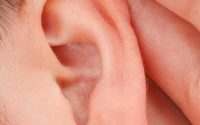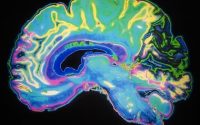FQHCs have played a key role in enabling COVID-19 vaccine equity among people of color
Racial and ethnic disparities in COVID-19 cases, hospitalizations, and deaths have persisted throughout the pandemic, and improving vaccine access and uptake among the populations that are disproportionately impacted remains one of the most critical ways to stop the spread of the virus.
Federally qualified health centers (FQHCs) have played a central role in increasing COVID-19 vaccination rates across the US among underserved and minority populations, according to a new study led by a Boston University School of Public Health (BUSPH) researcher.
Published in the journal JAMA Network Open, the study found that, as of July 2021, FQHCs administered 61.4 percent of their vaccines to people of color, compared to 40 percent of vaccines administered to racial and ethnic groups in the general US population.
FQHCs provide primary care services to underserved communities across the country, and the COVID-19 vaccination effort at the centers was fueled by the Health Center COVID-19 Vaccine Program, which the Biden administration launched in February 2021 to ensure that all communities have an opportunity to receive the vaccine.
FQHCs have played a critical role in enabling equitable access to COVID-19 vaccines in marginalized communities that are otherwise often least likely to receive the vaccine."
Dr. Megan Cole Brahim, study lead author, assistant professor of health law, policy & management at BUSPH
The fact that FQHCs are intentionally located in low-income, medically underserved areas and are seen as trusted members of the local community makes these centers a critical access point for marginalized populations, she says.
"These populations may not otherwise have easy access to a vaccine clinic, or may not trust other types of institutions with histories of racism or that have systematically failed them," Cole says. "As we continue to see lower COVID vaccination rates in many low-income communities of color, particularly within Black communities and among children, continued investment in FQHCs from federal and state governments will be critical in improving vaccine equity."
For the study, Cole and colleagues analyzed FQHC administrative data and national COVID-19 survey data on total cumulative vaccinations by race and ethnicity at 1,096 FQHCs that served 25.9 million patients across the country from January 8 to July 2, 2021. Vaccines were equitably administered to American Indian, Alaska Native, Asian, and Hispanic patients, while inequities among Black patients persisted-;but those inequities were smaller compared with those among the general Black population in the US.
"Persistent COVID vaccine inequities among Black communities is likely shaped by greater structural barriers to accessing the vaccine, combined with medical mistrust stemming from decades of systemic racism in the medical community," Cole says. "FQHCs can help to further mitigate these drivers through continued partnerships with community organizations, targeted outreach, mobile and pop-up clinics with extended hours, and by provided culturally competent and linguistically appropriate information to all patients."
The study was co-authored by Julia Raifman, assistant professor of health law, policy & management at BUSPH; Sabrina Assoumou, infectious disease physician at Boston Medical Center and assistant professor of medicine at Boston University School of Medicine; and June-Ho Kim, instructor of medicine at Harvard Medical School and internal medicine physician at Brigham and Women's Hospital.
Boston University School of Medicine
Cole, M.B., et al. (2022) Assessment of Administration and Receipt of COVID-19 Vaccines in US Federally Qualified Health Centers by Race and Ethnicity. JAMA Network Open. doi.org/10.1001/jamanetworkopen.2021.42698.
Posted in: Medical Research News | Healthcare News
Tags: Blood, Children, Coronavirus, covid-19, Drug Abuse, Education, Heart, Hospital, Medical School, Medicine, Mental Health, Pandemic, Primary Care, Public Health, Research, Vaccine, Virus
Source: Read Full Article


